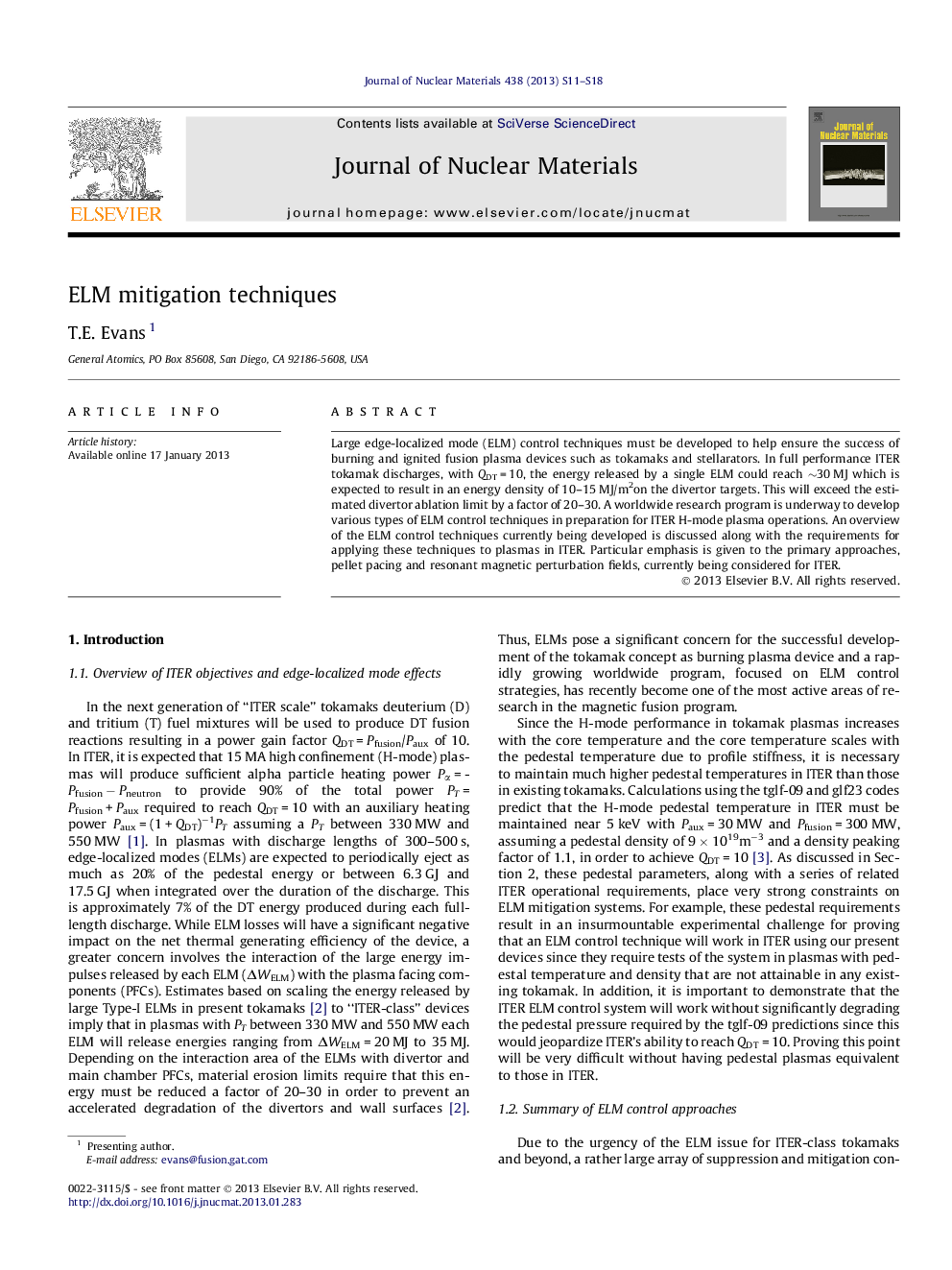| Article ID | Journal | Published Year | Pages | File Type |
|---|---|---|---|---|
| 10644941 | Journal of Nuclear Materials | 2013 | 8 Pages |
Abstract
Large edge-localized mode (ELM) control techniques must be developed to help ensure the success of burning and ignited fusion plasma devices such as tokamaks and stellarators. In full performance ITER tokamak discharges, with QDTÂ =Â 10, the energy released by a single ELM could reach â¼30Â MJ which is expected to result in an energy density of 10-15Â MJ/m2on the divertor targets. This will exceed the estimated divertor ablation limit by a factor of 20-30. A worldwide research program is underway to develop various types of ELM control techniques in preparation for ITER H-mode plasma operations. An overview of the ELM control techniques currently being developed is discussed along with the requirements for applying these techniques to plasmas in ITER. Particular emphasis is given to the primary approaches, pellet pacing and resonant magnetic perturbation fields, currently being considered for ITER.
Related Topics
Physical Sciences and Engineering
Energy
Nuclear Energy and Engineering
Authors
T.E. Evans,
